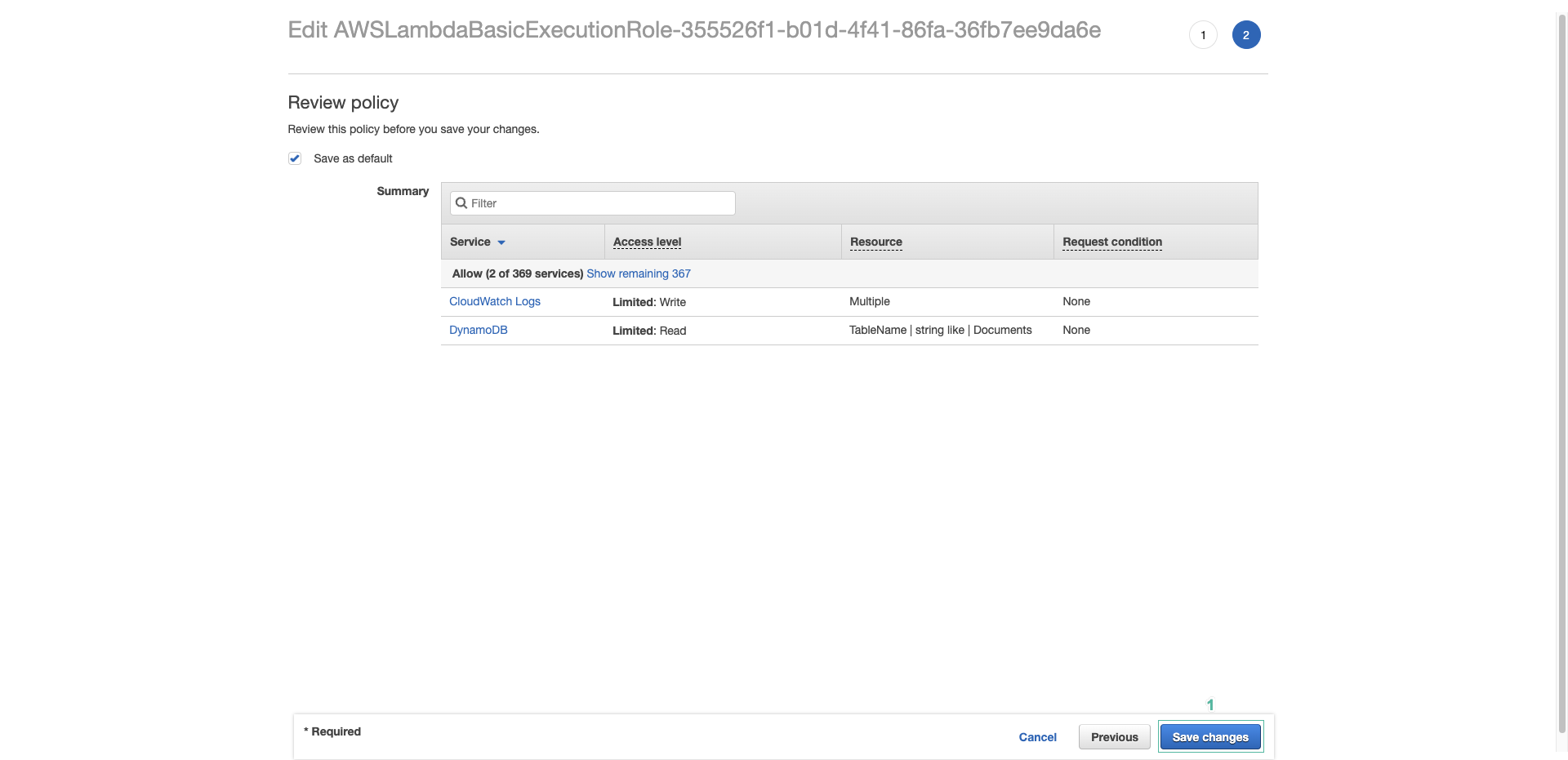Create listing function
In this section we will create a function to list the documents stored in the DynamoDB table by the user’s id.
-
Open AWS Lambda console
-
Click Create function

-
Enter function name:
list_documents
- Select Python 3.9 for Runtime
- Click Create function
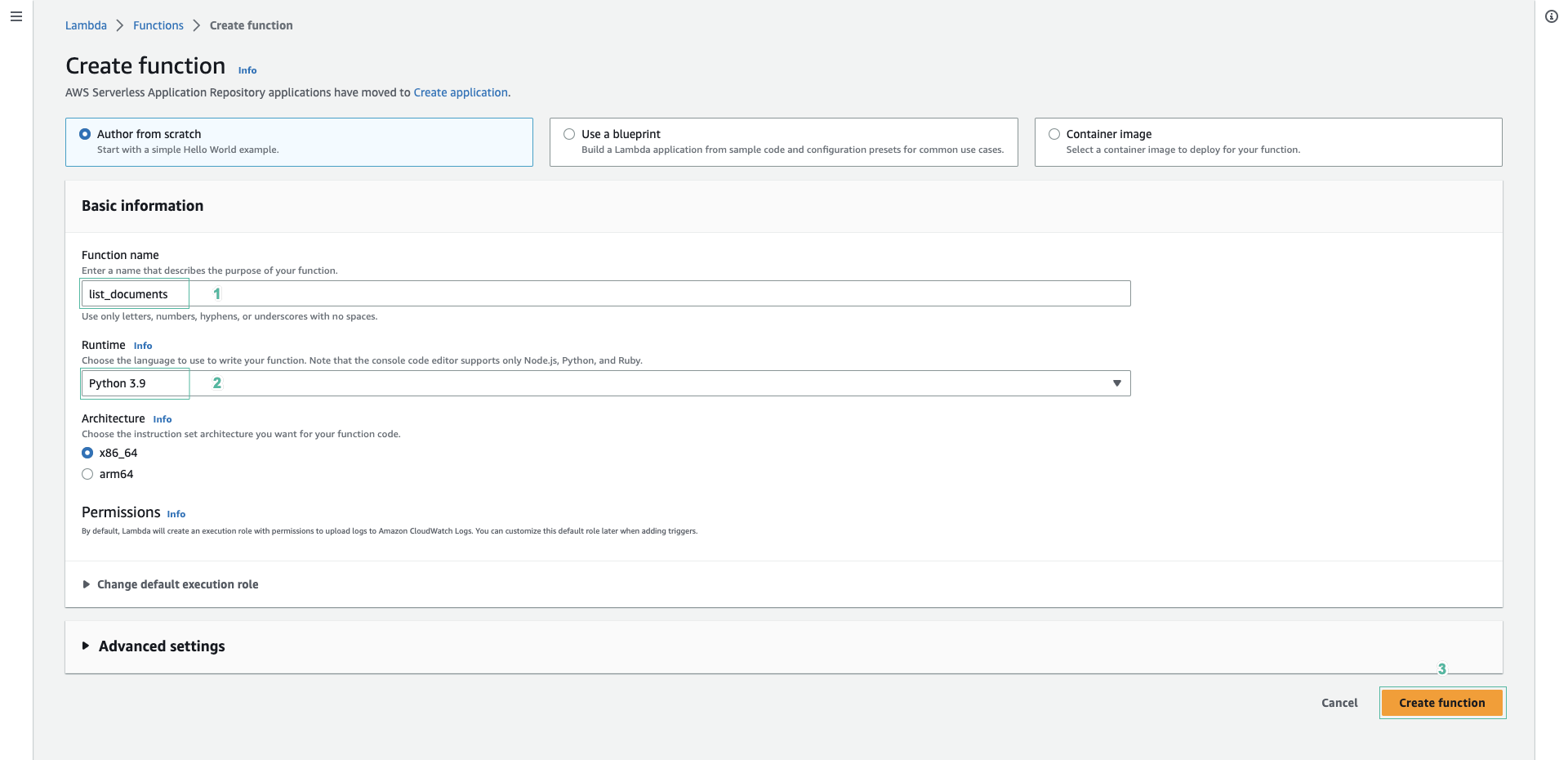
- Enter the following code for the lambda_function.py file:
import json
import boto3
import os
from decimal import *
from boto3.dynamodb.types import TypeDeserializer
dynamodb = boto3.client('dynamodb')
serializer = TypeDeserializer()
class DecimalEncoder(json.JSONEncoder):
def default(self, obj):
if isinstance(obj, Decimal):
return str(obj)
return json.JSONEncoder.default(self, obj)
def deserialize(data):
if isinstance(data, list):
return [deserialize(v) for v in data]
if isinstance(data, dict):
try:
return serializer.deserialize(data)
except TypeError:
return {k: deserialize(v) for k, v in data.items()}
else:
return data
def lambda_handler(event, context):
table_name = os.environ['TABLE_NAME']
user_id = event['pathParameters']['id']
print(user_id)
docs = dynamodb.query(
TableName=table_name,
KeyConditionExpression="user_id = :id",
ExpressionAttributeValues={ ":id": { 'S': user_id } }
)
format_data_docs = deserialize(docs["Items"])
# TODO implement
return {
"statusCode": 200,
"headers": {
"Content-Type": "application/json",
"Access-Control-Allow-Origin": "*",
"Access-Control-Allow-Methods": "GET,PUT,POST,DELETE, OPTIONS",
"Access-Control-Allow-Headers": "Access-Control-Allow-Headers, Origin,Accept, X-Requested-With, Content-Type, Access-Control-Request-Method,X-Access-Token,XKey,Authorization"
},
"body": json.dumps(format_data_docs, cls=DecimalEncoder)
}
- Then click Deploy
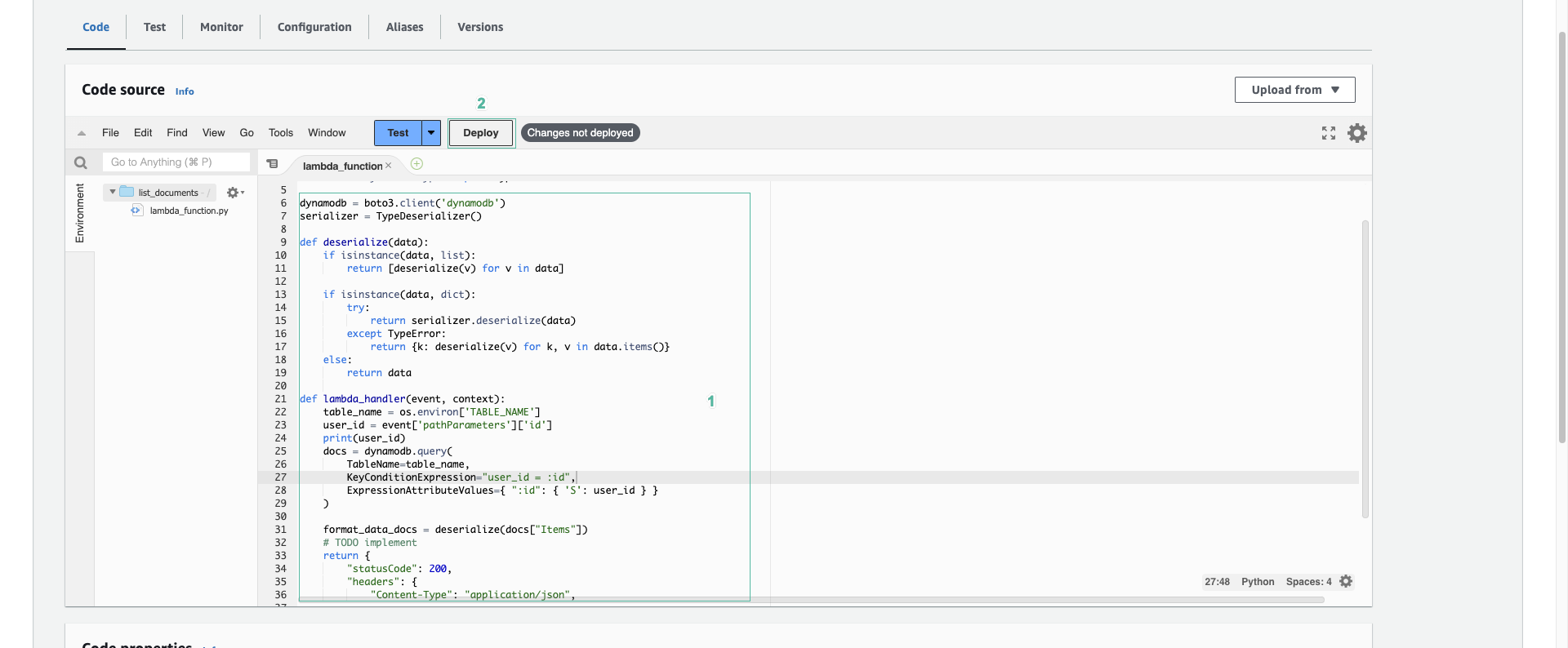
The above code executes to get the user’s TABLE_NAME and id environment variables from the event. Then query to the DynamoDB table provided that the value of Partition key is equal to the user’s id. Then reformat the data returned after the query.
- We need to add an environment variable to the function. Click the Configuration tab, then select Environment variables in the left menu. Press Edit
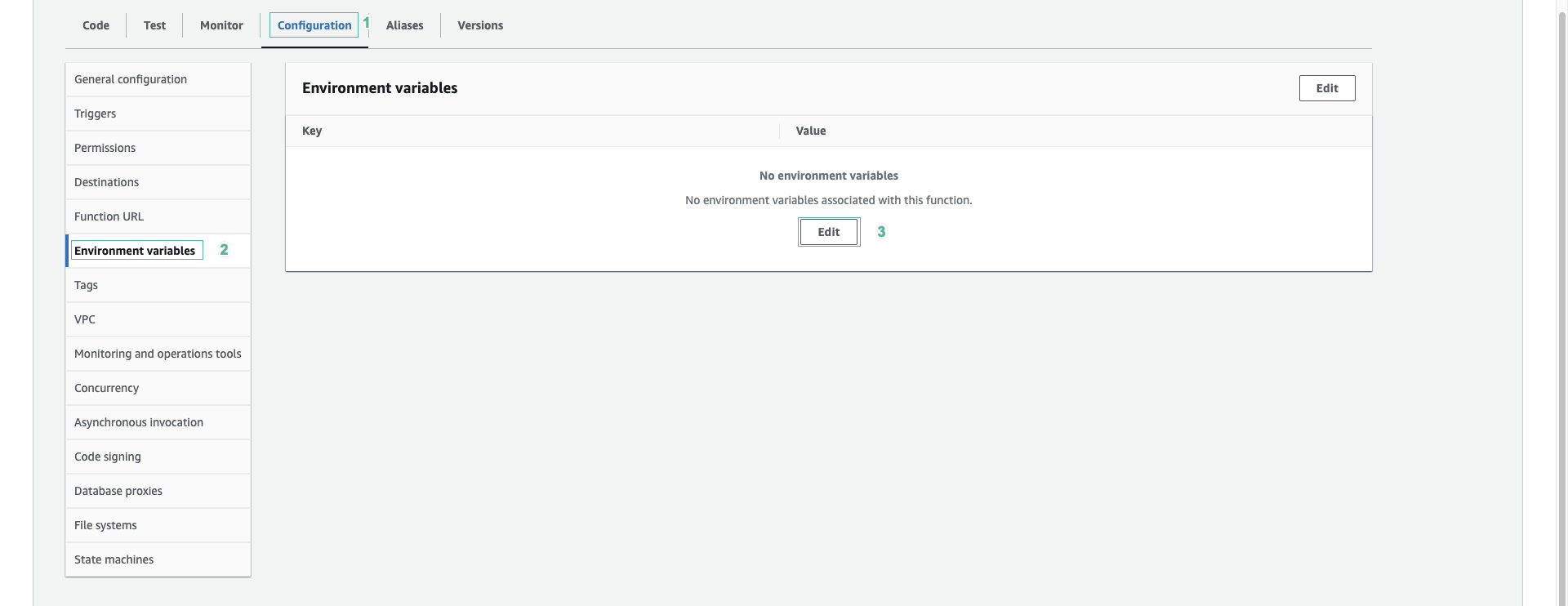
- Click Add environment variable
- Enter
TABLE_NAMEas key - Enter the DynamoDB table name that you just created
- Click Save
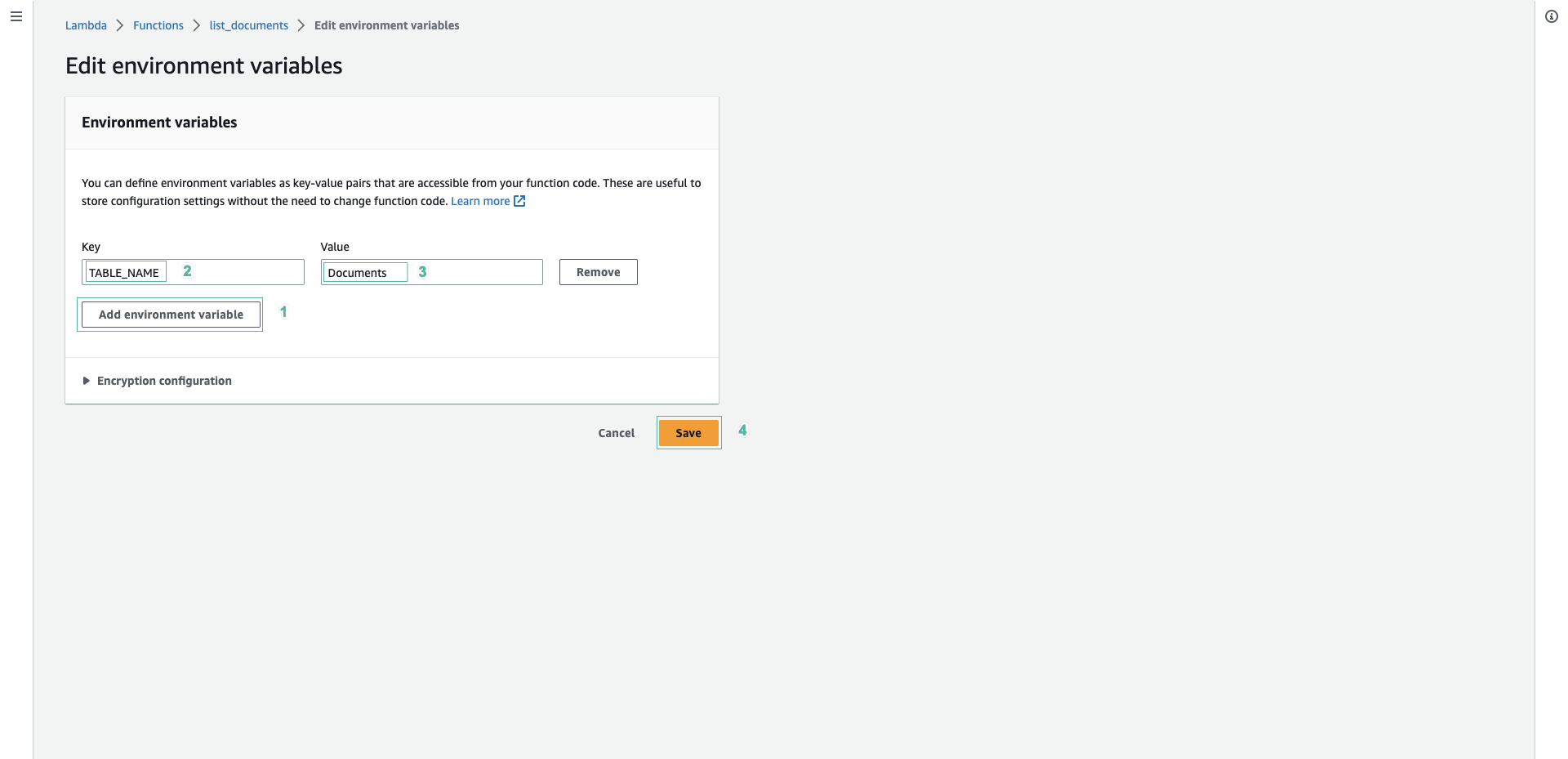
- Next, add permissions for function to access DynamoDB table
- Click Permission on the left menu
- Click on the execution role of the function

- Expand the AWSLambdaBasicExecutionRole… policy, then click Edit

- Click JSON json. Copy the JSON below into the editor
,
{
"Effect": "Allow",
"Action": [
"dynamodb:Query"
],
"Resource": "arn:aws:dynamodb:REGION:ACCOUNT_ID:table/Documents"
}
Replace REGION and ACCOUNT_ID with the region you create the table and your account id.
- Click Review policy
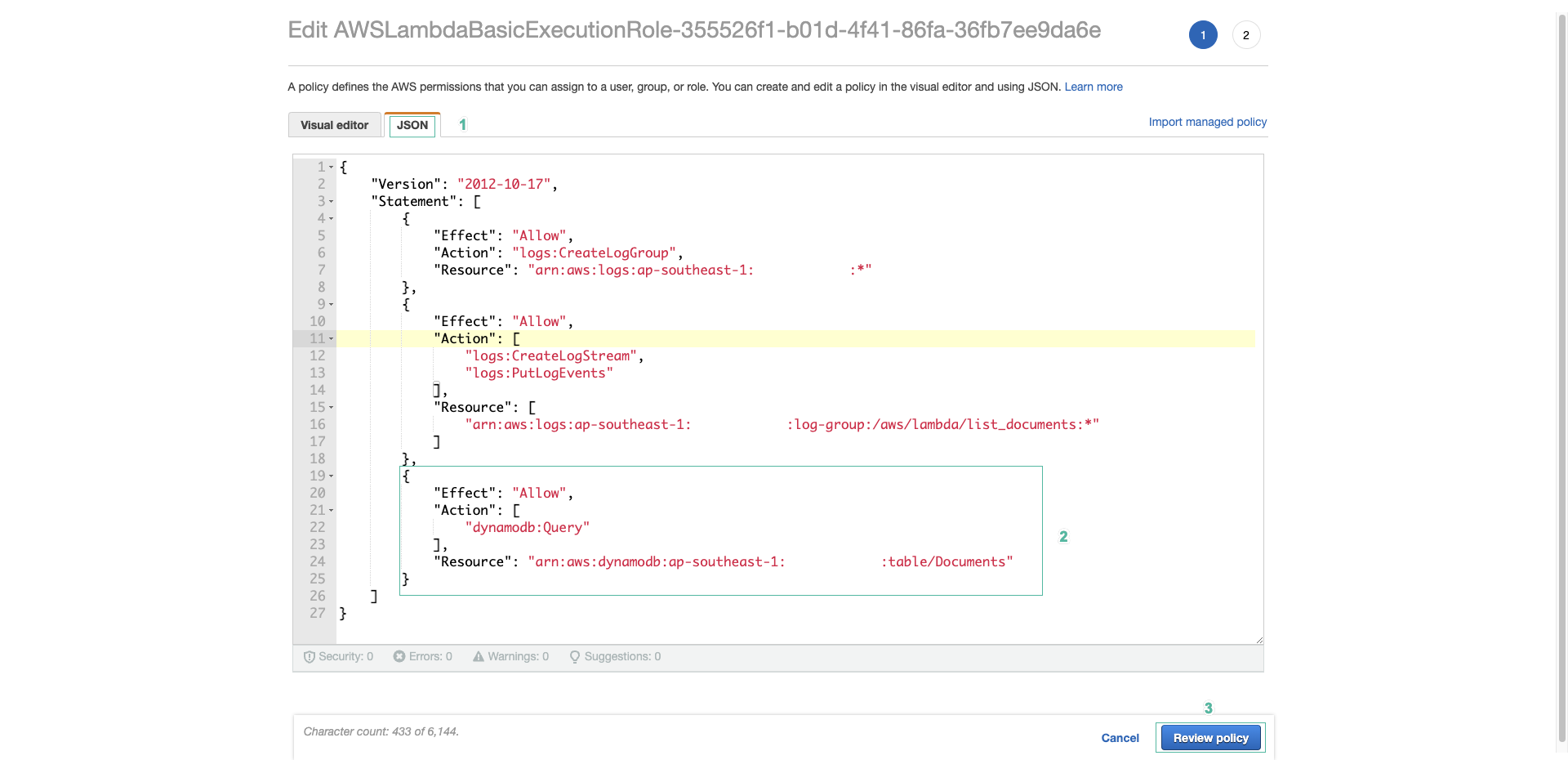
- Click Save changes
